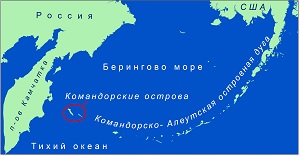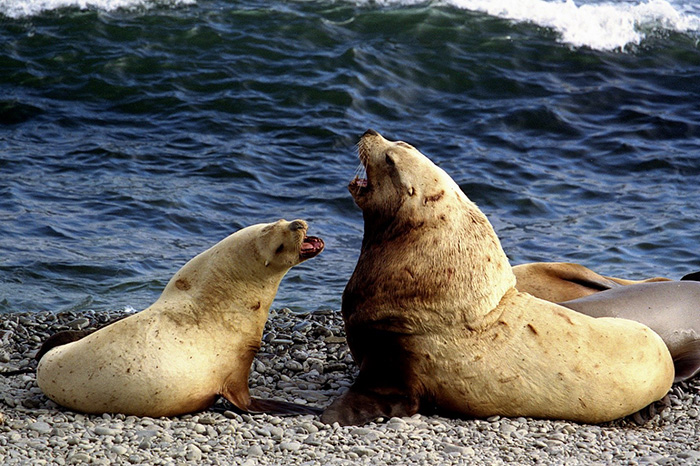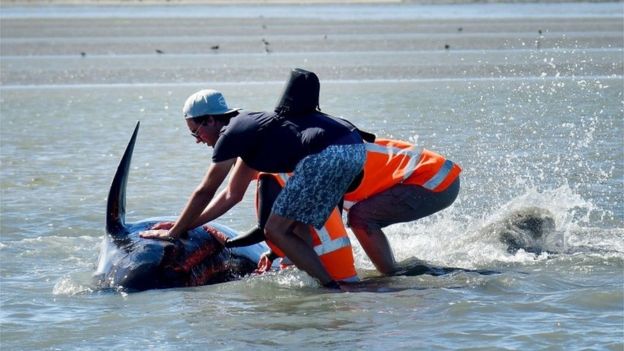Many of us already know, that on February 10 on Farewell Spit sandy beach in New Zealand 550 pilot whales (Globicephala melas) were found. Pilot whales are a part of cetacean order and Delphinidae family. 335 animals died, but the rest managed to survive partly thanks to actions of more then 200 volunteers, specialists and rescuers and partly because of high tide, which helped the pilot whales to leave the area for Golden Bay, where the local rescue service tried to direct the animals towards the open sea.
On February 14 eight more pilot whales were stranded ashore. Till late night volunteers together with Michael Cropp, journalist from Radio New Zeland, tried to save them. They pored water on the animals to keep them wet, covered them to protect from hot summer Sun of the Southern Hemisphere and tried to keep their blowholes clear from water and sand. After midnight high tide came and the whales managed to escape from this dry captivity. It is worth saying that before high tide gives the animals the possibility to escape, it is deadly dangerous for the volunteers, as with the tide come stingrays, some of which are very hazardous for people.
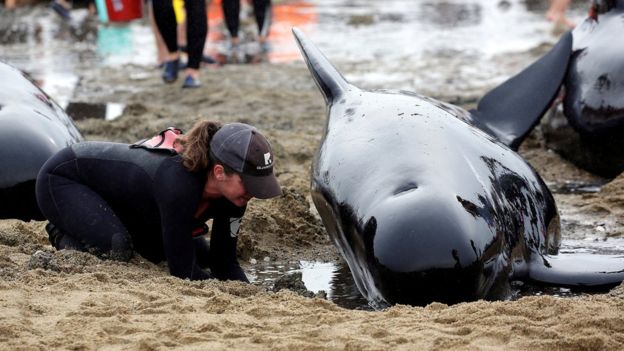
Volunteers helping pilot whales. Photo from bbc.com / AFP
"For such a majestic animal, it's really strange to seem them doing this," volunteer Jonathan Jones said.
One of the possible reasons may a shark attack, as some bite marks were found on one of he dead whales. Herb Christophers from New Zealand's department of conservation said, that the pilot whales were trying to get round the top of South Island, which is a long narrow strap of land – a sand spit – and in shallow waters eco location is not always giving good results. "It's a very difficult place if you get lost in there and you are a whale," he said.
Moreover, on shore pilot whales may send a distress signal, which attracts other animals and put them in danger, because of low tide.
Nature protection specialists of New Zealand say, that it is not the first time Deliphinidae are stranded on the beach of Farewell Spit, but not in such quantities. Two years ago in February 2015 200 pilot whales were found in this region.
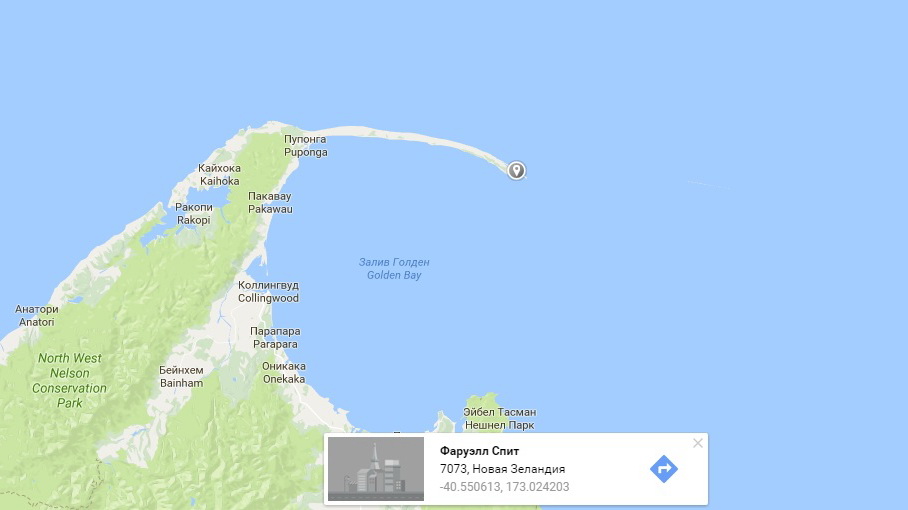
Farewell Spit, Golden Bay, New Zealand. Photo from maps.google.com
So what other reasons could have possibly make so many cetaceans to beach themselves: eco location problems, sharks, global warming? Let us ask Evgeny Mamaev, Deputy Director for Science in The Commander Islands Nature and Biosphere Reserve, who has a 25-year experience in marine mammals research, including cetaceans.
“The exact reasons of whales beaching themselves are unknown. There are several hypothesis, but the most popular one explains this phenomenon by local changes in the Earth’s magnetic field,” said Evgeny Mamaev. “We think, that cetaceans navigate successfully in the open ocean, using their talent to feel the geomagnetic field of the planet, as if they had a compass. If there is some sort of change if the field, cetaceans may lose their way and beach themselves. It was noticed, that it happens in places with sandy or muddy bottom, where eco location may deceive the animals. That is why there are several places in the world, where such cases are quite regular. I would like to tell you about the inhabitants of the waters of our reserve. Near the Commander Islands 21 species of cetaceans were registered. About 10 of them are seen regularly. Sometimes we find stranded cetaceans on the Commander Islands, but usually they are already dead. Several times were found living whales, but we had never seen such massive stranding.”
Based on information from:
Head photo from: bbc.com / AFP





